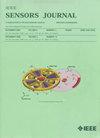基于aiot的太极拳学习身体传感器网络研究
IF 4.3
2区 综合性期刊
Q1 ENGINEERING, ELECTRICAL & ELECTRONIC
引用次数: 0
摘要
太极拳是一种古老的中国武术,以其促进身心健康而闻名,如延缓衰老,预防疾病和缓解压力。然而,学习太极拳是具有挑战性的,特别是对于没有教练指导的初学者。精通需要理解复杂的原则,如身体协调、重心转移和力量发挥,这些都是正确技术的必要条件。传统的培训在很大程度上依赖于经验丰富的教师,这使得个人很难独立练习和有效地进步。这项研究解决了初学者面临的挑战,他们在没有持续反馈的情况下努力提高,特别是在没有教练的情况下。在这里,我们提出了一个基于人工智能(AI)的系统来指导和纠正学生的动作,使用可穿戴传感器,包括惯性测量单元(imu)和智能鞋垫,以及智能手机摄像头。该系统收集教师和学生的运动数据,比较他们的动作,并对差异提供即时反馈。不像其他的太极训练系统,主要集中在姿势的纠正,我们的系统强调力量的运用-太极的一个关键组成部分。通过分析动作和重量分布,该系统帮助学生识别技术错误,提高他们的力量产生和身体协调能力。这种反馈机制使独立练习,使太极拳训练更容易和有效。本文章由计算机程序翻译,如有差异,请以英文原文为准。
Toward an AIoT-Based Body Sensor Network for Learning Tai-Chi Chun
Tai Chi, an ancient Chinese martial art, is known for its benefits in promoting physical and mental well-being, such as slowing aging, preventing diseases, and alleviating stress. However, learning Tai Chi can be challenging, especially for beginners without an instructor’s guidance. Mastery requires understanding complex principles like body coordination, weight shifting, and force exertion, which are essential for proper technique. Traditional training relies heavily on experienced instructors, making it difficult for individuals to practice independently and progress effectively. This study addresses the challenge faced by beginners who struggle to improve without continuous feedback, particularly in the absence of an instructor. Here, we propose an artificial intelligence (AI)-based system to guide and correct students’ movements using wearable sensors, including inertial measurement units (IMUs) and smart insoles, along with smartphone cameras. The system collects motion data from both instructors and students, compares their movements, and provides immediate feedback on discrepancies. Unlike other Tai-Chi training systems that focus mainly on posture correction, our system emphasizes force exertion—a key component of Tai Chi. By analyzing movements and weight distribution, the system helps students identify errors in technique, improving their force generation and body coordination. This feedback mechanism enables independent practice, making Tai-Chi training more accessible and efficient.
求助全文
通过发布文献求助,成功后即可免费获取论文全文。
去求助
来源期刊

IEEE Sensors Journal
工程技术-工程:电子与电气
CiteScore
7.70
自引率
14.00%
发文量
2058
审稿时长
5.2 months
期刊介绍:
The fields of interest of the IEEE Sensors Journal are the theory, design , fabrication, manufacturing and applications of devices for sensing and transducing physical, chemical and biological phenomena, with emphasis on the electronics and physics aspect of sensors and integrated sensors-actuators. IEEE Sensors Journal deals with the following:
-Sensor Phenomenology, Modelling, and Evaluation
-Sensor Materials, Processing, and Fabrication
-Chemical and Gas Sensors
-Microfluidics and Biosensors
-Optical Sensors
-Physical Sensors: Temperature, Mechanical, Magnetic, and others
-Acoustic and Ultrasonic Sensors
-Sensor Packaging
-Sensor Networks
-Sensor Applications
-Sensor Systems: Signals, Processing, and Interfaces
-Actuators and Sensor Power Systems
-Sensor Signal Processing for high precision and stability (amplification, filtering, linearization, modulation/demodulation) and under harsh conditions (EMC, radiation, humidity, temperature); energy consumption/harvesting
-Sensor Data Processing (soft computing with sensor data, e.g., pattern recognition, machine learning, evolutionary computation; sensor data fusion, processing of wave e.g., electromagnetic and acoustic; and non-wave, e.g., chemical, gravity, particle, thermal, radiative and non-radiative sensor data, detection, estimation and classification based on sensor data)
-Sensors in Industrial Practice
 求助内容:
求助内容: 应助结果提醒方式:
应助结果提醒方式:


